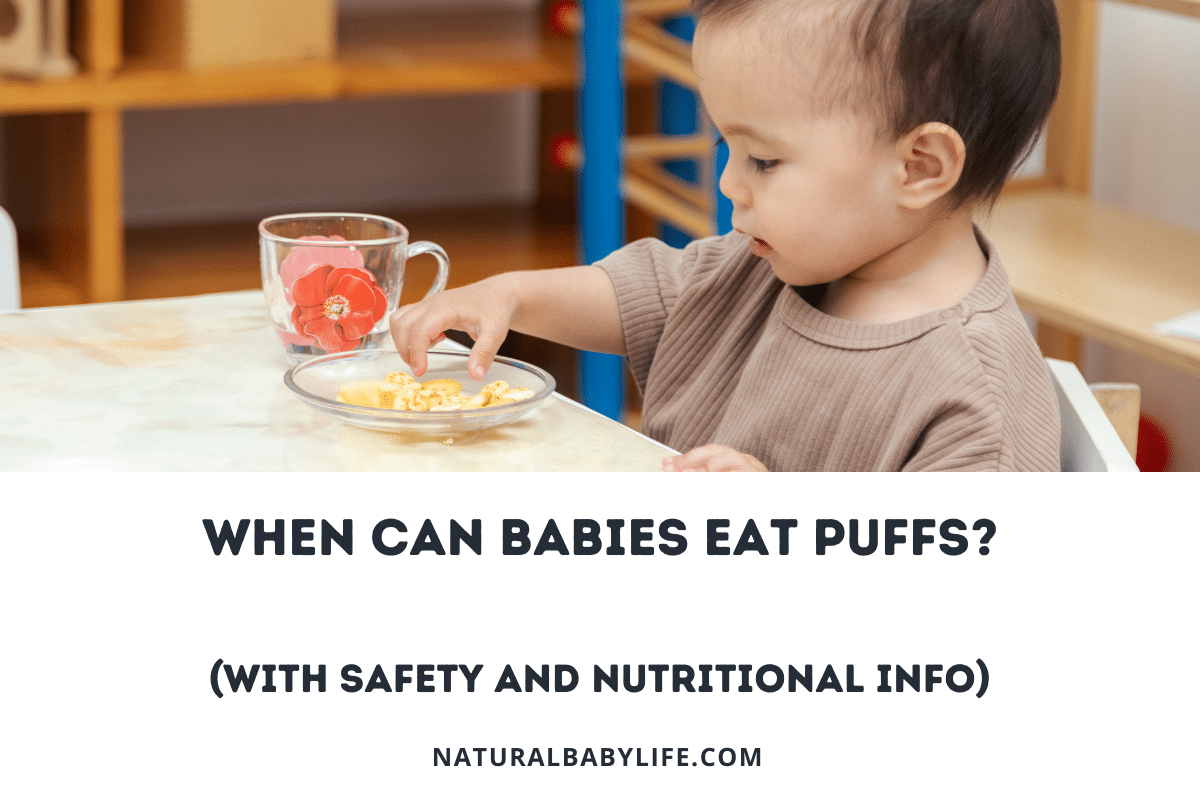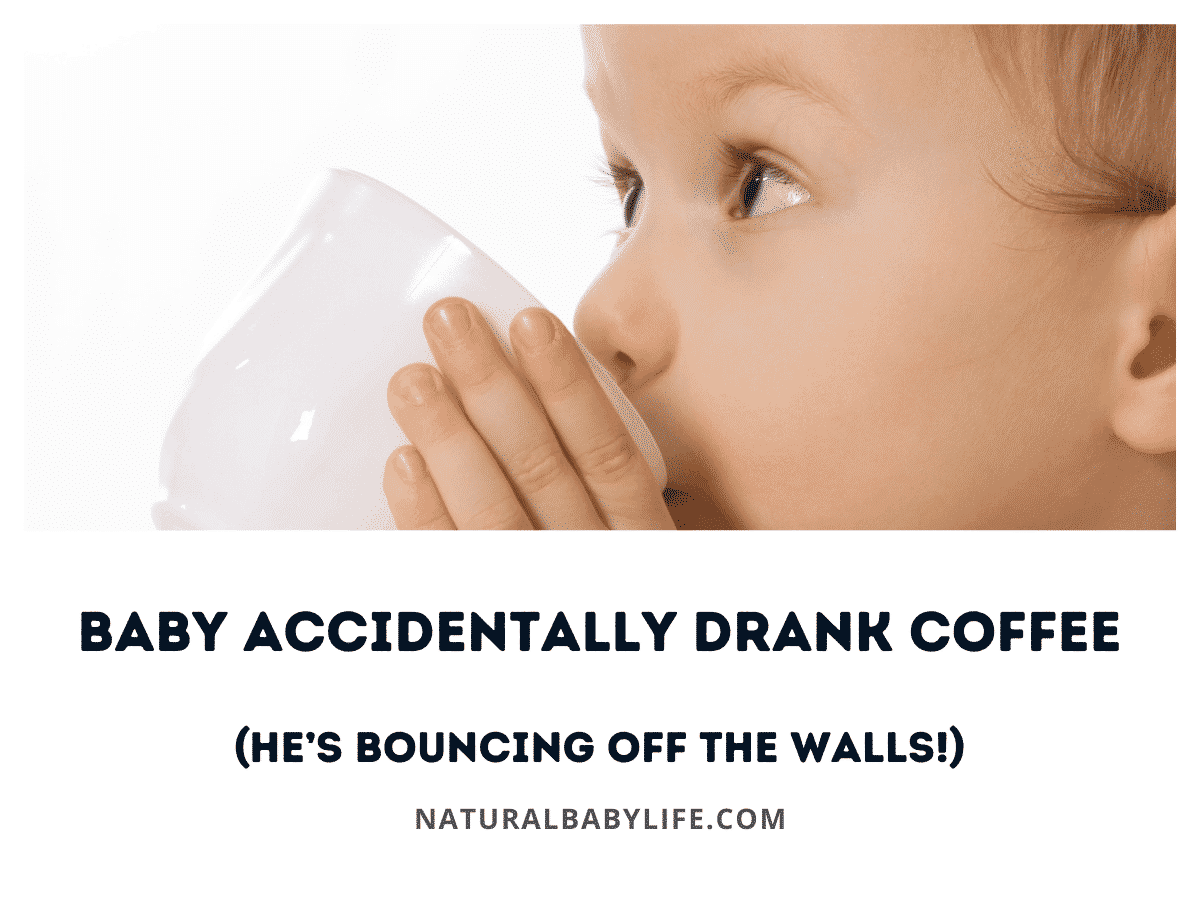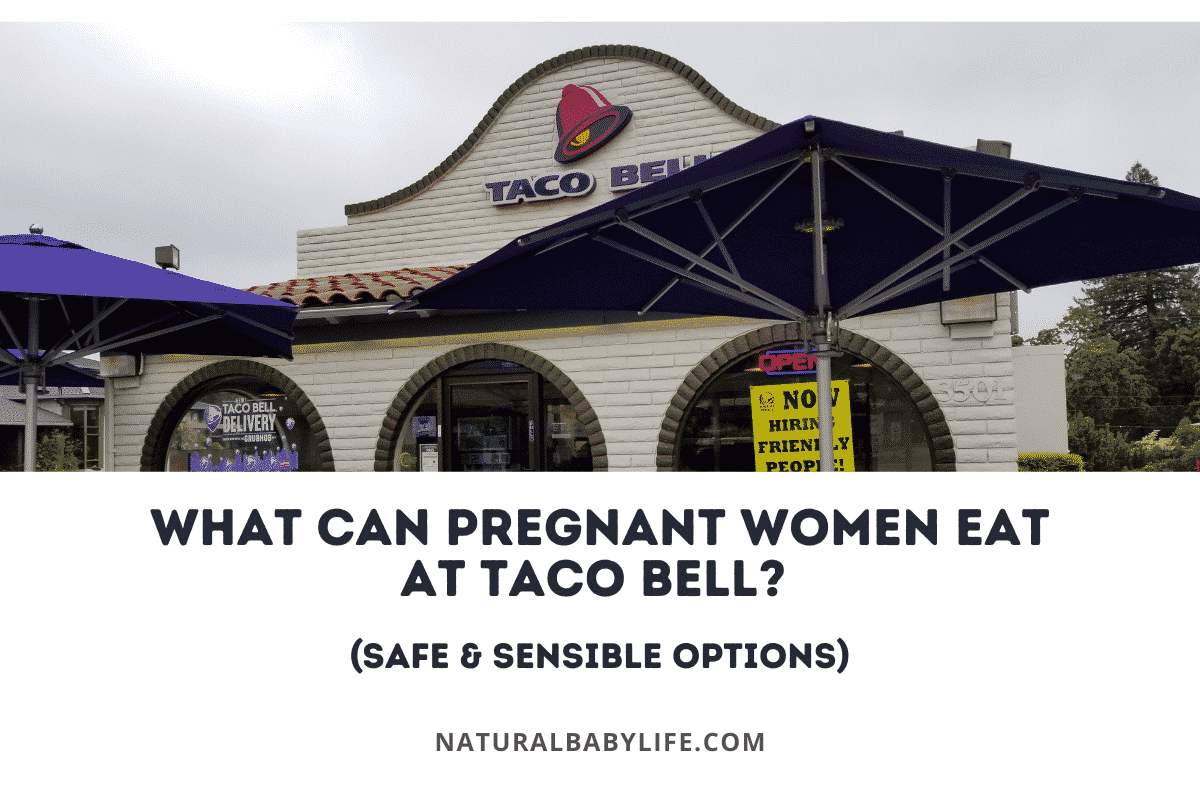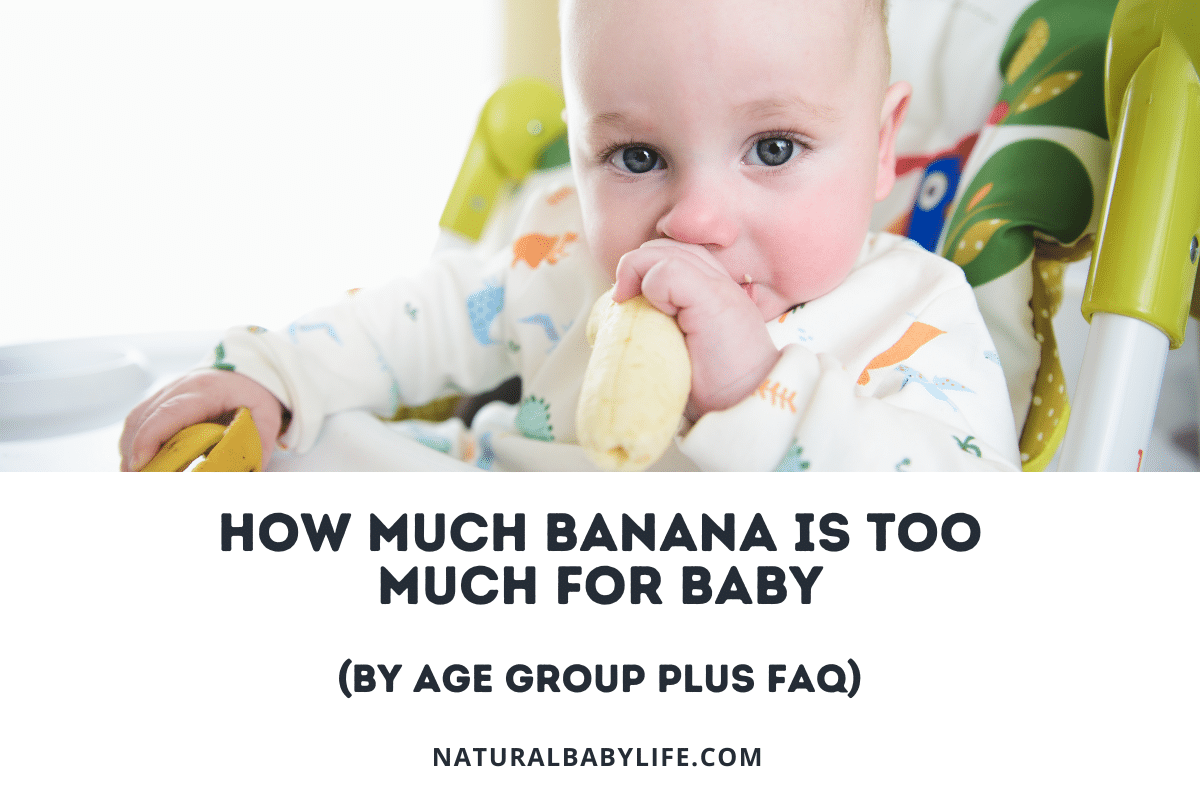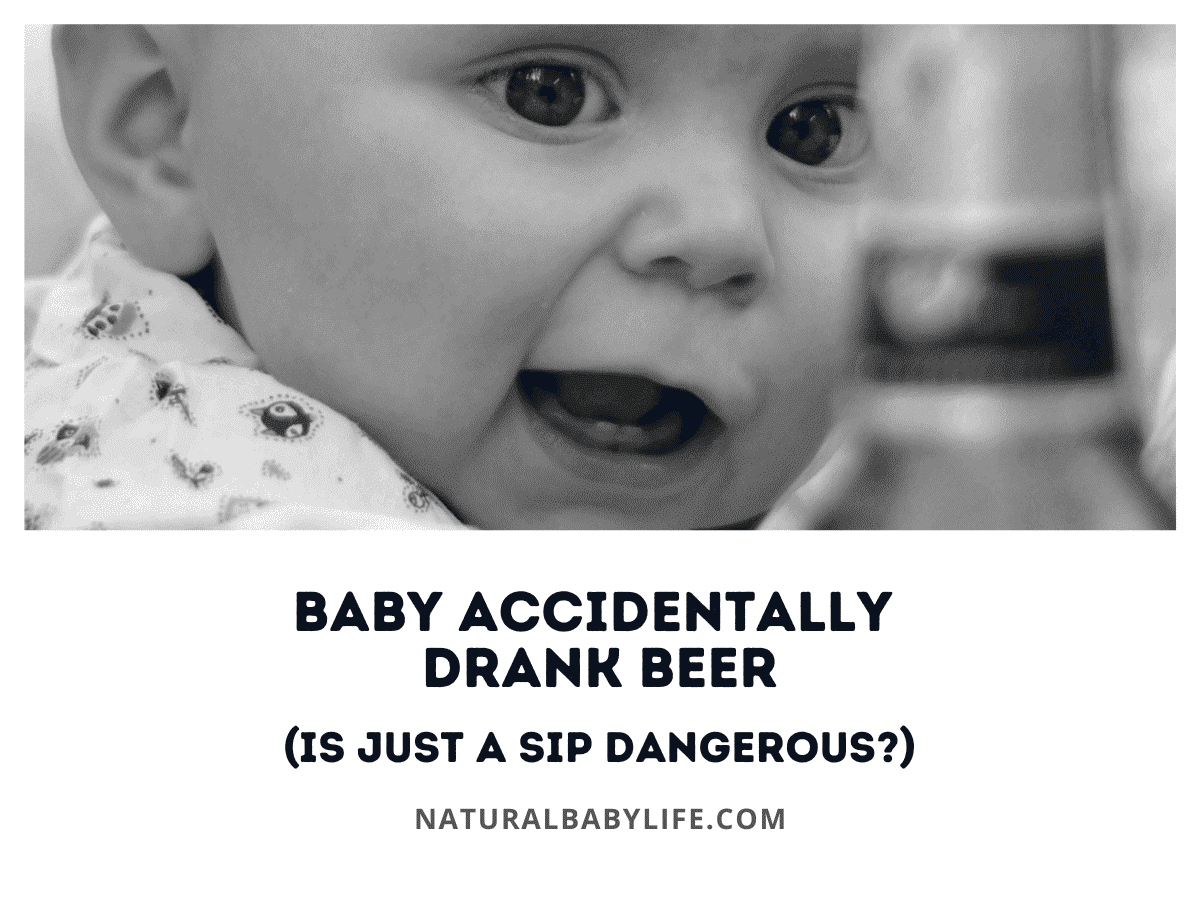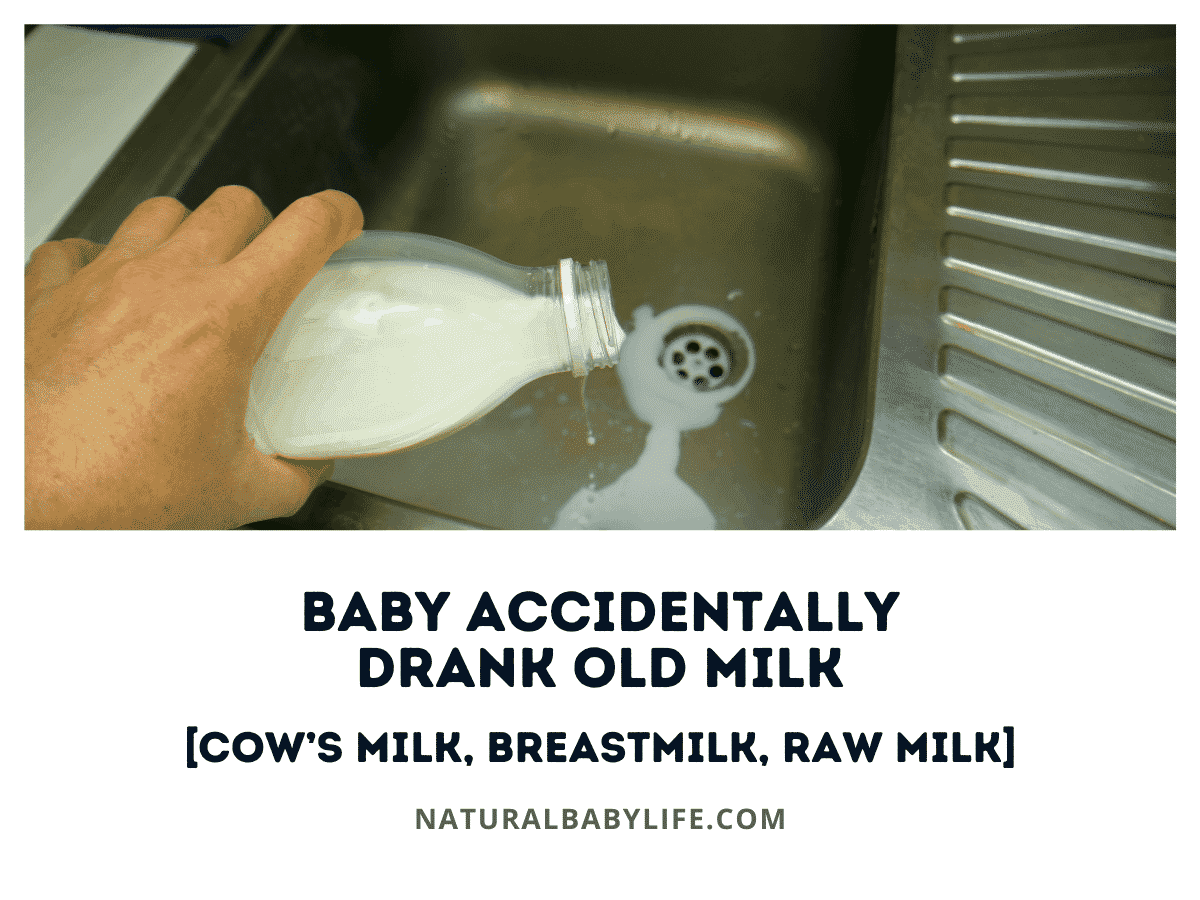Maybe you’ve seen one of those cute videos of babies eating pickles and making funny faces or you’re a pickle lover and just curious when your little one can enjoy pickles as much as you. Either way, you’re left wondering can babies have pickles?
It’s okay to give your baby pickles when they’re ready to begin eating solid foods, around 6 months of age. Cold pickles can help with teething or be a great option for baby-led weaning, but they can also be high in sodium and sugar. Additionally, the acid in pickles can cause diaper rash, so it’s best to give them to your baby in moderation.
Read on as we discuss the benefits and drawbacks of feeding pickles to your baby, as well as tips on how to introduce them.
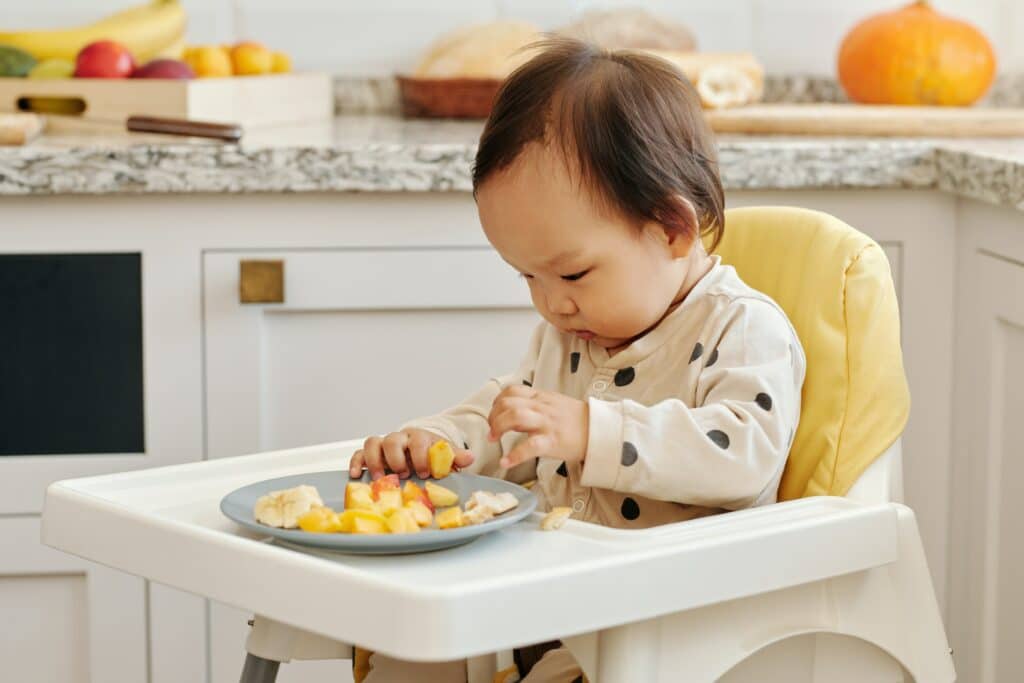
Table of Contents
Can babies have pickles?
If you’ve ever wondered can babies have pickles, the answer is usually yes! If your baby is already eating solid foods, you can see if pickles are one of the foods they enjoy.
Babies can eat pickles when they are ready to begin solid foods, generally around 6 months of age, and are great for baby-led weaning or as something to chew on while your little one is teething.
You’ll want to be picky about the pickles you choose because they can be high in sodium. It’s important to ensure your baby isn’t getting too much salt at such as young age. You’ll also want to look out for added sugars as well.
After feeding your baby pickles, pay attention to their mouth and bottom to make sure they don’t end up having an allergic reaction or getting a diaper rash from the vinegar-based acidity of the pickles.
Can babies drink pickle juice?
If you’re wondering what kind of pickles can babies eat, you might have considered whether pickle juice is safe. You may have also been concerned that pickle juice could be too strong or generally unhealthy for your little one.
Once your little one has started eating pickles, a bit of pickle juice isn’t going to harm them, but it’s not really going to do her any good either.
Just like with water, you’ll want to watch and ensure that they don’t drink enough to fill their stomach since they should still be hungry for healthy, nutritious foods.
When can babies have pickles?
You can give baby pickles to eat as soon as they’re ready to eat solid foods, which usually occurs around 6 months of age.
Your little one will start to show signs of readiness such as:
- Holding their head up in a steady, upright position
- Sitting with support
- Showing an interest in food
As with any new food you are introducing to your baby, you’ll want to wait three to five days after giving them pickles before introducing another new food.
That way, you can be sure they don’t have a reaction to it.
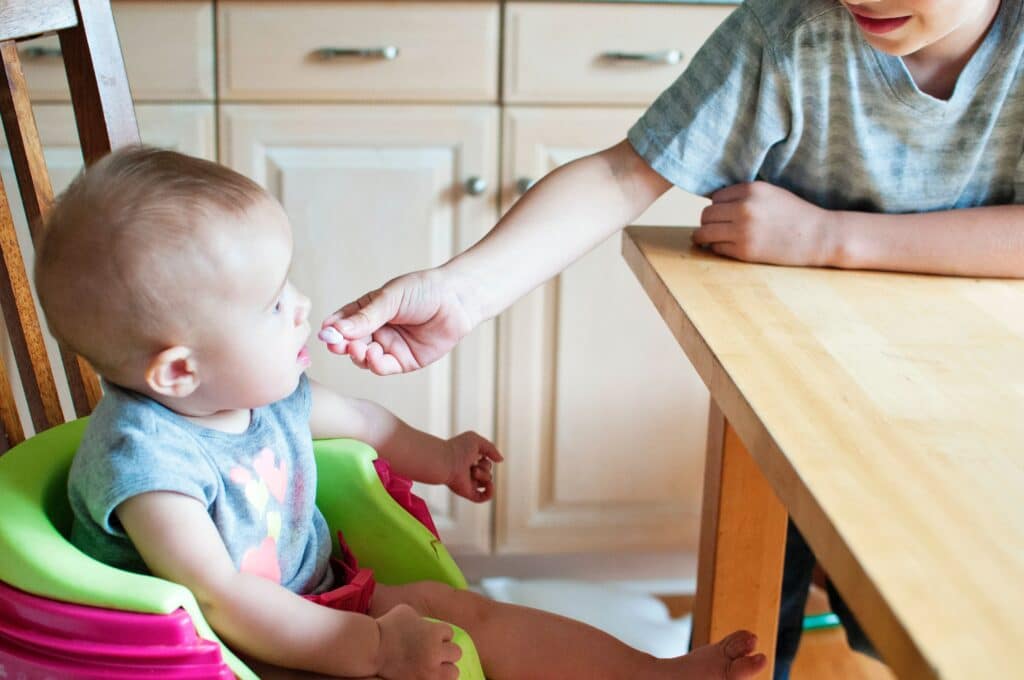
Can babies be allergic to pickles?
Babies can have an allergic reaction to pickles, but, it’s usually not caused by the actual pickle. Instead, it’s usually caused by the pickling process and added preservatives.
It could be that your baby does just fine with one brand of pickles, but has a reaction to a different brand. If your baby has any known allergies, pay attention to the ingredients list when you’re at the grocery store. Also, if you think your baby may be having a reaction to the pickles, try comparing the ingredient list to other foods in your home.
The common reactions you may see in baby could be:
- rash
- wheezing
- nausea
- cramps
- diarrhea
If you want to skip the preservatives and make your own pickles, here’s a simple recipe you can try.
Benefits of pickles for babies
Pickles aren’t just fun to watch baby eat (cue the adorable sour faces), but they can also provide some real benefit for your baby. Not only can they help soothe your baby’s aching gums while teething, but pickles are also an ideal shape and size for baby-led weaning. Let’s take a look at some of the benefits of feeding your baby pickles:
Teething snack
Pickles can be a great snack for a baby when they’re teething. If you give your little one a cold, spear-shaped pickle, they can easily hold it in their fist and gnaw away on it, soothing their gums.
Baby-led weaning
If you are going the route of baby-led weaning with your little one, and letting them feed themself finger foods from the very start, then pickles can be a good snack for baby to try.
A pickle spear is a perfect shape for baby to hold onto as they experiment with the taste and texture.
But, always watch young babies whenever they’re eating whole foods that could become a choking hazard, such as pickle spears.
Potential drawbacks of eating pickles
While pickles can provide some benefits for baby, they can also have some drawbacks as well.
Some babies can’t tolerate acidic foods as well as others, which could lead to a case of diaper rash. It’s also going to be important to check the label on the pickles you purchase for baby since they can have a high salt content, as well as added sugars.
Let’s take a closer look at some of the potential drawbacks of feeding your baby pickles.
Diaper rash
One of the most common issues surrounding baby’s newfound pickle eating can be diaper rash.
Pickles are acidic because of their vinegar content and acidic foods can often cause baby’s skin to become irritated, particularly around their bottom and mouth.
Sodium intake
While pickles can be a good snack for babies to eat, they can be high in sodium levels.
A single pickle spear generally contains 400 mg of sodium. Your baby isn’t likely to eat the whole pickle, but you’ll still want to keep an eye on just how much they’re eating.
Salt is fine for baby in moderation, but it’s important that they don’t consume an excessive amount of sodium. It’s been shown that babies who consume a lot of sodium will crave it as adults, which could lead to unhealthy habits.
How much sodium can baby have? These are the daily recommendations according to the Food and Nutrition Board of the Institute of Medicine at the National Academy of Sciences:
- Infants under 6 months – 110 mg
- Babies 7-12 months – 370 mg
- Children 1-3 years – 800 mg
Added sugars
Some pickles, like the bread and butter variety, are sweeter than others.
These types of pickles can have more sugar in them than other pickles such as dill pickles. When choosing pickles to give to baby, give the Nutrition Facts label a quick look on the back to see just how much added sugar is in each pickle.

How to feed pickles to baby
When you first introduce pickles in your baby’s diet, you’ll want to make sure that it’s the only new food you give your little one in that sitting.
That way, if they have a reaction, you’ll know it. When choosing which pickles to give your baby, you may want to look for a lower sodium pickle and check the sugar content, too.
Dill spears are a good option to start with for baby since they’re less likely to have as much sugar and they are an easy shape for your baby to hold.
Introducing pickles to baby
Starting off with pickle spears is the easiest way to introduce pickles to baby when they’re between 6 and 9 months old. If you leave the skin on the pickle, it helps provide a little extra grip to hold onto.
As your baby gets older, closer to 12 months old, you can try different shapes with the pickles, allowing them to work on their pincer grasp and try to pick up some smaller pieces of a pickle.
Once your baby starts to enter toddlerhood and is between 18 and 24 months old, you can get even more creative with the shape of the pickles, including half-moons or matchstick shapes. At this point, your baby can even attempt eating the pickle with their fork.
Frequently Asked Questions (FAQs)
Can babies have cucumbers?
If your baby is eating solid foods, they can eat cucumbers. It’s important to cut them to the right size for your baby since raw vegetables can present a choking hazard. Since cucumbers are about 95% water, there’s a low risk of an allergic reaction.
Are pickles a choking hazard for babies?
Yes, pickles can be a choking hazard for your baby. Anything can be a choking hazard if it’s not cut or cooked properly. If your baby is doing baby-led weaning, pickles can be a great finger-food, but it’s important to always stay with your baby while they’re eating.
When can babies have pickles?
If your baby is showing signs of readiness for eating solids, your baby can try pickles for the first time. It’s important to pay attention to which brand of pickles you choose since pickles are high in sodium and some have high sugar content as well.
Can babies under 1 have pickles?
If your baby is ready to have solid foods, they can have pickles. If they’re trying pickles for the first time, be sure to keep an eye on them in case of an allergic reaction. It’s also important to look out for diaper rash due to the acidity of pickles.
Are pickles good for your baby?
Pickles can be a good snack for your baby, but they can also have an incredibly high sodium content. Some pickle varieties also have a high sugar content. Like any food with high sodium or sugar, only give it to your baby in moderation.
Conclusion
Pickles are a great snack and you might wonder can babies have pickles. If your baby is ready to eat solid foods or is already eating solids, they’re ready to try pickles. Keep in mind that there are some downsides to feeding your little one pickles and they can have a pretty high sodium content. However, as long as you give them to your baby in moderation, they can enjoy pickles as a snack.



